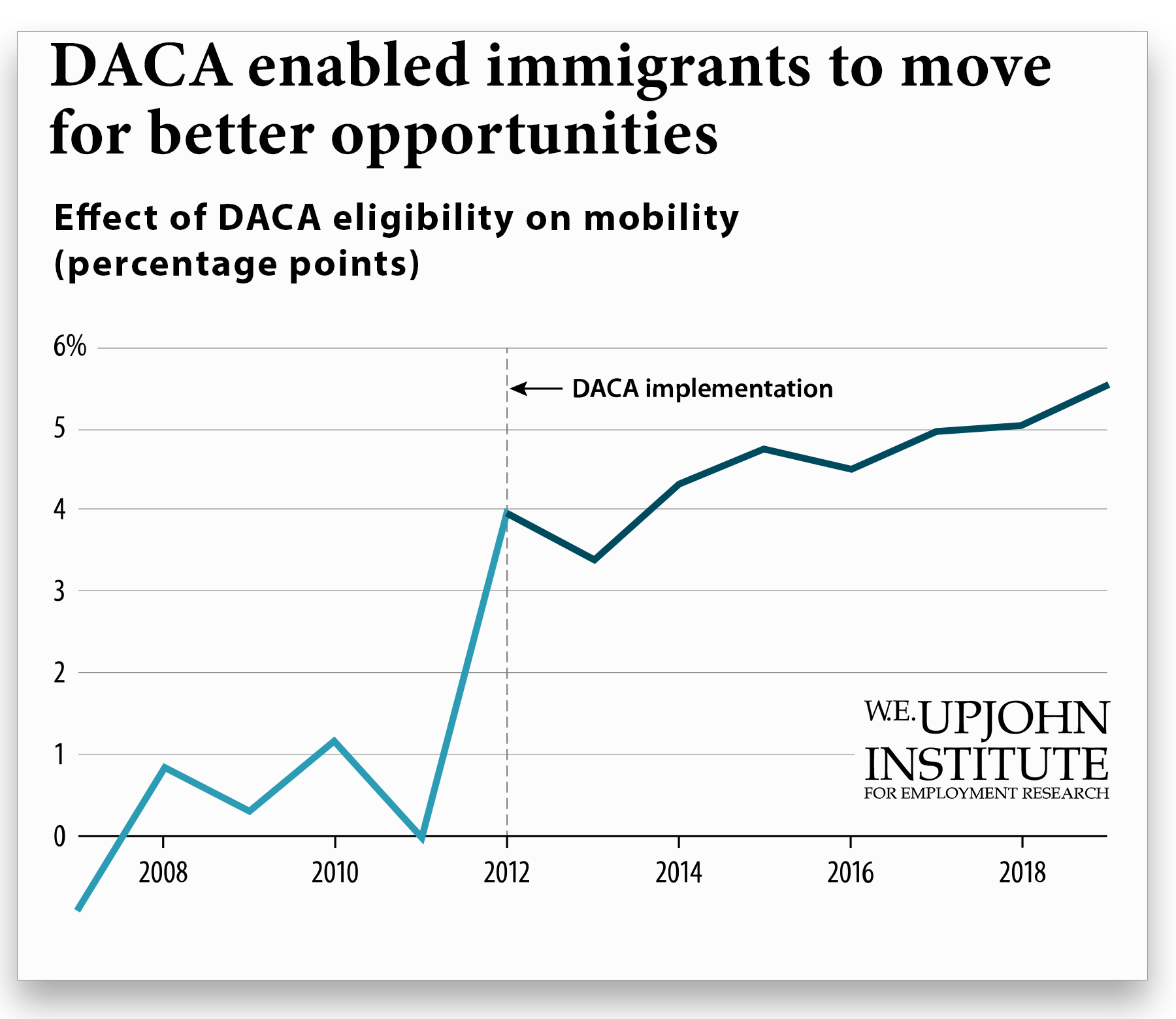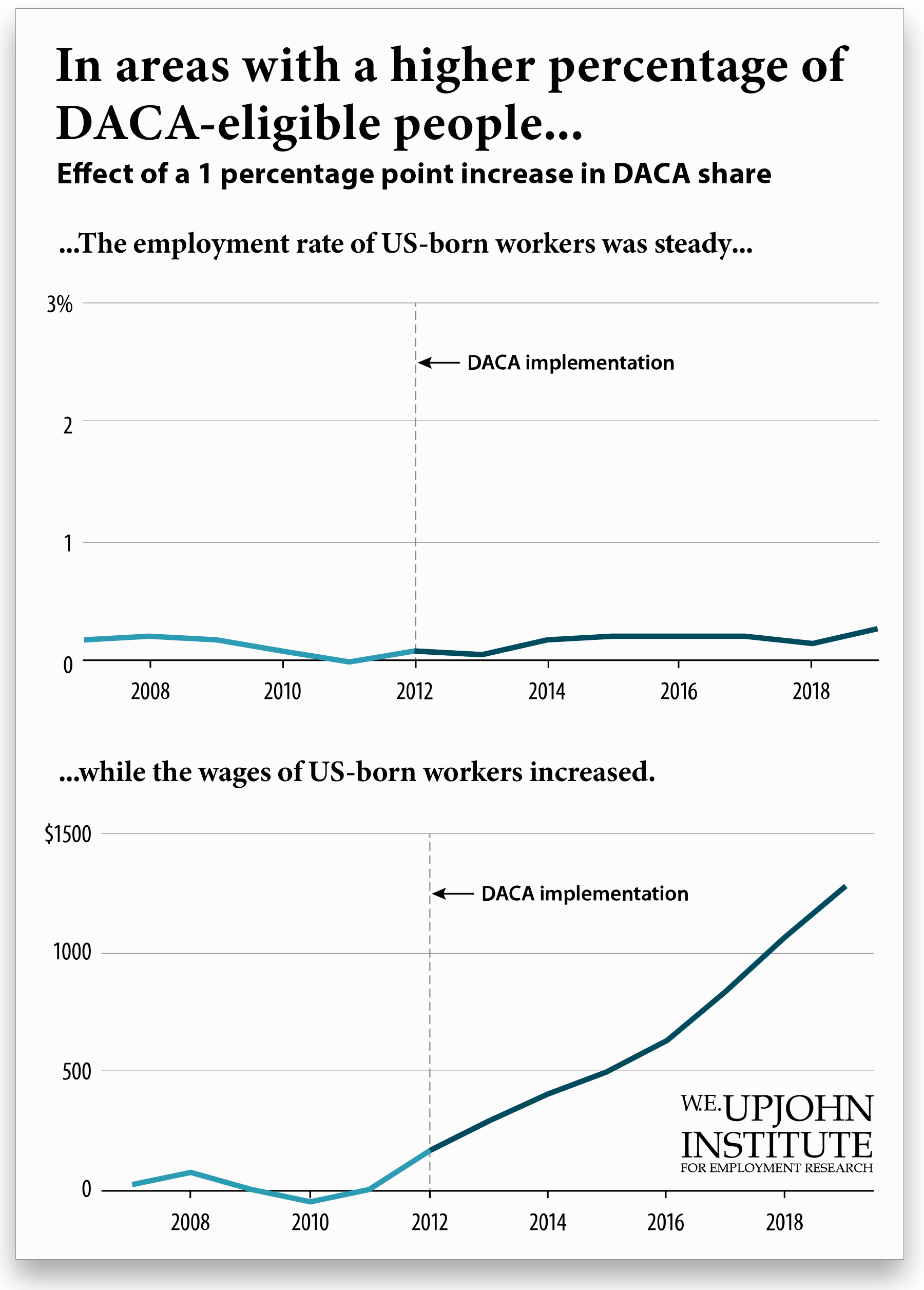
New research shows that obtaining legal status through the Deferred Action for Childhood Arrivals, or DACA, program reduced uncertainty among immigrants, encouraging them to develop new skills and relocate to areas with better economic opportunities. The study also found that the presence of DACA-eligible workers did not reduce employment among U.S.-born workers and may even have increased their earnings.
Researchers Jimena Villanueva Kiser and Riley Wilson of Brigham Young University decribe their findings in the Upjohn Institute paper "DACA, Mobility Investments, and Economic Outcomes of Immigrants and Natives." The research was supported by the institute's Early Career Research Awards program.
"After DACA was implemented in 2012, DACA-eligible individuals were about 19 percent more likely to move, and more likely to move to labor markets with above median average wages,” according to the study. The report also notes that, with legal status, DACA-eligible individuals often shifted into higher-paying occupations and occupations that require a license, such as teaching, nursing, and childcare.
 |
The positive impact was not limited to immigrants. In labor markets with larger numbers of DACA-eligible people, employment levels for US-born individuals remained steady and wages for native-born workers increased, suggesting a positive spillover from immigrant legalization. In those same areas, earnings among U.S.-born workers steadily rose after 2012, resulting in an increase in annual earnings of nearly $1,300 by 2019 and of about $2,700 for college graduates.
 |
DACA is a U.S. immigration policy that protects eligible undocumented individuals who arrived in the country as children from deportation. Established in 2012, DACA allows recipients to obtain work permits and protects them from removal for two years, after which it can be renewed. To qualify, applicants must meet specific criteria, such as continuous residence in the U.S., educational or military service, and a clean criminal record. DACA does not provide a path to citizenship, but it offers temporary relief for certain undocumented immigrants brought to the U.S. as minors.
The Upjohn Institute Early Career Research Awards provide resources for junior researchers (within six years of earning a Ph.D.) to carry out policy-related research on employment issues. The Institute encourages research proposals on all issues related to employment and public workforce policy. Eligible research may examine how policies affect overall labor market outcomes or the labor market outcomes of different groups. Junior researchers in economics, sociology, public policy, political science, and related fields may apply.
